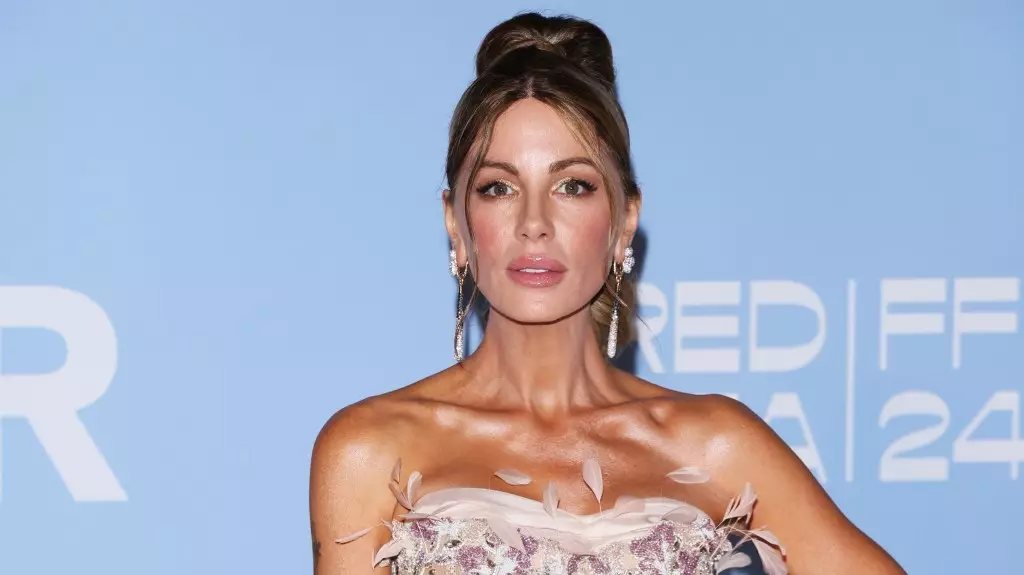Actress Kate Beckinsale’s recent Instagram video serves as a powerful catalyst for discussions surrounding the pervasive sexism in Hollywood. Through her stirring testimony, Beckinsale shares firsthand accounts that illuminate a culture that has long silenced women’s voices in an industry rife with harassment and oppression. Her decision to speak out was undeniably influenced by the recent Blake Lively and Justin Baldoni scandal, which has drawn attention to the troubling issues of misogyny within the film industry. Beckinsale’s narrative isn’t just a personal retelling; rather, it actively engages with a broader conversation about the systemic issues that women face behind the scenes.
In under five minutes, Beckinsale dives into her own painful experiences, recounting being assaulted at the young age of 18 while working on a film set. What makes her story particularly striking is not only the trauma she endured but also the subsequent betrayal she felt from other women in the industry who dismissed her plight. Her recollections provide insight into a toxic environment where women are often blamed for asserting their rights while the men who perpetrate misconduct rarely face consequences. In an industry that thrives on appearances and the status quo, Beckinsale’s video is a necessary interrogation into the cost of compliance for women in Hollywood.
Beckinsale’s narrative also sheds light on the dehumanizing beauty standards women are subjected to, many of which are perpetuated by the very individuals who should be their allies. During her time in the industry, she faced relentless scrutiny regarding her appearance, often finding herself at the mercy of “groups of people” who would debate her attractiveness. This kind of objectification is emblematic of a greater issue where women are valued more for how they look than for their talent and contributions. She describes an instance where she underwent rigorous diet and exercise regimens that resulted in the loss of her periods—an alarming testament to the lengths to which women go to appease industry expectations.
Confrontation and Isolation
Beckinsale’s powerful anecdotes emphasize the culture of gaslighting that many women endure when they confront their male colleagues about inappropriate behavior. She candidly recalls incidents where she was ostracized for speaking out against a male co-star who was consistently under the influence while on set. Instead of addressing the misconduct, studio executives chose to distract her with a bicycle to alleviate delays—revealing a troubling pattern of enabling toxic behavior rather than addressing it head-on. Her experiences of being belittled and isolated for expressing valid concerns starkly highlight the challenges women face in a male-dominated industry.
Among her many harrowing stories, Beckinsale also touches on the pervasive reach of predatory figures like Harvey Weinstein, noting that while she was fortunate enough to avoid direct sexual assault, she suffered from professional repercussions following her refusal to cooperate with his demands. This speaks to a larger issue of exploitation that often goes unnoticed, as many women, especially in Hollywood, find themselves facing retaliation when they attempt to assert their boundaries or speak out against harassment.
In the concluding remarks of her video, Beckinsale emphasizes the ongoing nature of these issues, dispelling the notion propagated by many that the landscape for women in Hollywood has substantially changed. Her assertion that the culture remains largely unchanged is alarming, pushing back against the false narratives that men champion when they declare that the past was worse. Instead, she emphasizes the stark reality that the issues of assault, harassment, and sexism are still prevalent, leaving women like herself to shoulder the burden of experiences that have lingered far too long without resolution.
Kate Beckinsale’s testimonial is not just a recounting of her traumatic experiences; it is a clarion call for change in an industry that has failed to protect its women. By courageously opening up about the systemic issues she and countless others face, she invites a reckoning within Hollywood. Moving forward, it is imperative that the industry adopts a zero-tolerance policy towards harassment and sexism, ensuring that every voice—especially those of women who have been historically marginalized—can speak freely and candidly, fostering a safer and more equitable environment for future generations.


Leave a Reply